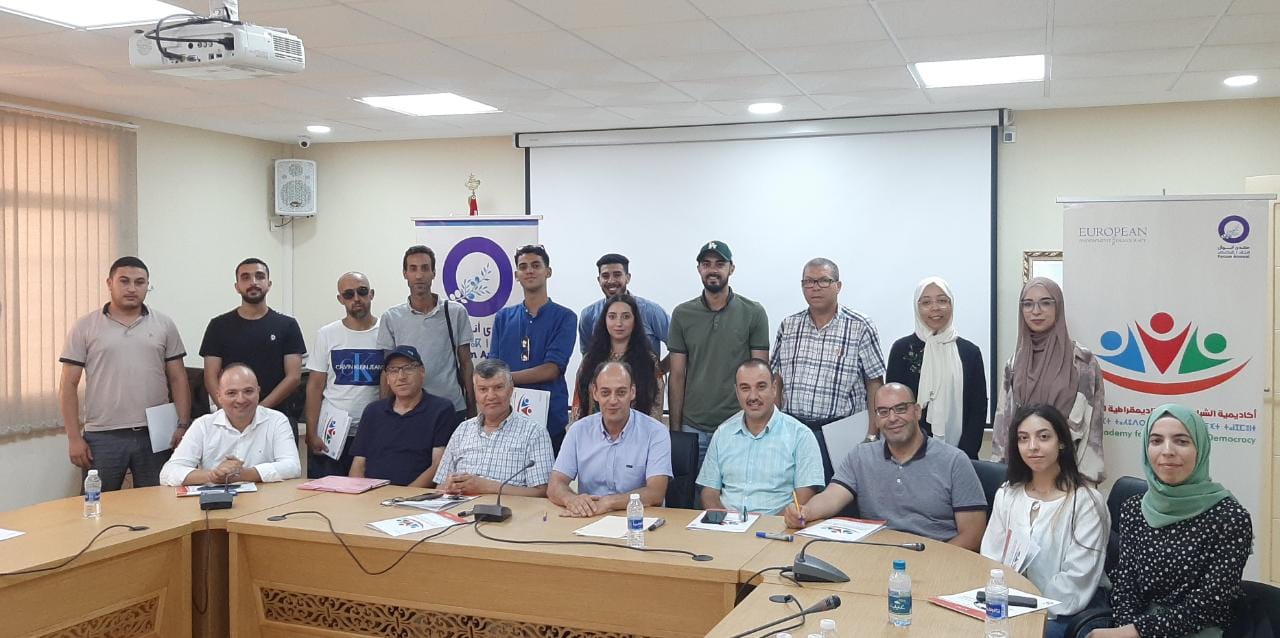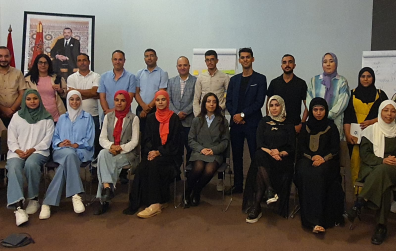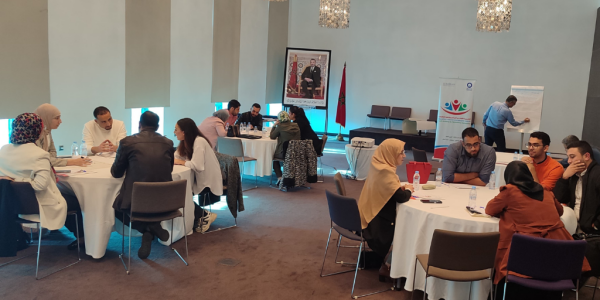
One of the least prosperous regions in Morocco, the Rif was the site of the Hirak Rif movement in 2017. The local population took to the streets to protest corruption and the lack of economic prospects in a region where emigration is often the only alternative for local youth.
The government responded harshly to the protests, arresting more than 800 youth and sentencing some of them to up to 20 years in prison. Young people became afraid to take part in civic life. Anwal Forum, a youth organisation founded in 2016, knew they had to change this mindset. “We wanted to give them a way to ask for their rights, to improve youth participation in policy-making,” says founder Mohammed El Hammouchi.
Before founding the Forum, Mohammed had extensive experience in civil society, previously working at the National Human Rights Council of Morocco for three years. A stint working at the local administration of his hometown had made him acutely aware of citizens’ needs in a challenging socio-economic environment. He saw Anwal Forum as a way to foster youth participation in civic life, empowering them to assert their rights to freedom of expression and assembly.
Thanks to a supported by NED and in partnership with the Laboratory for Legal and Political Studies in the University of Nador, Anwal Forum established a legal aid clinic (LAC), where students could drop in to ask for legal aid related to the protests. The Forum also campaigned on social media to raise awareness of the harsh punishments the youth faced for protesting.
“We have built a relationship with local youth throughout the years,” says Mohammed. “We have always been there, and we have earned a reputation as defenders of their rights.”

With EED support, the Anwal Forum established the Youth Academy for Change, a series of workshops teaching young people practical advocacy skills such as writing petitions and evaluating public policies, specifically those targeting youth.
“Policymakers in this region neglect young people and their needs. Many of them end up leaving the country, and those who stay are increasingly frustrated,” explains Mohammed. “We decided to teach young people about advocacy and submitting petitions, with the objective to increase their participation in evaluating public policies.”
The project started with training sessions for 60 young people in three different municipalities. To ensure the accountability of the local municipalities, the Forum partnered with a research centre inside the local university to establish a monitoring body whose task is to follow up on the petitions and youth-oriented public policy. It is made up of 20 of the 60 youth who took part in the training, plus representatives from the Anwal Forum and the university. They are now working on a report assessing youth policies in the region.
Mohammed explains that the local authorities have been largely positive, and they were willing to engage with the initiative. He admits it was harder to convince young people that the municipalities wanted to have a dialogue with them.
“They remember what happened to their peers who protested in 2017, they have little trust in the authorities,” says Mohammed. Still, he is convinced that this is a step in the right direction: some of the petitions submitted as part of the training programme have already started to have a concrete impact on local communities, which is slowly restoring the faith of the youth in their elected officials and in their ability to push for change in their cities.
One of the petitions, submitted in Nador, called for the improvement street accessibility for disabled people and prompted the local administration to start working on it in the city's main street. Another one, submitted in Beni Nassar, was well received by the local council, who promised to open a youth centre and initiated a dialogue to establish a framework agreement for cooperation.

Continuing to work on youth engagement in the future
Mohammed believes that activating existing consultative mechanisms available to local youth is already a success, although he recognises that these are early days.
“One year is not enough to tell if people feel empowered to advocate for their rights. But many of the participants are still in touch with us and regularly ask us for advice. We hope they will continue to be engaged and monitor public policy in the future.”
EED support also allowed the Anwal Forum to work on organisational development and capacity-building, drafting long-term strategic plans for their activities, with further increasing youth civic and political engagement as a main goal, and holding consultations with a fundraising expert that will help them forge new partnerships with both donors and like-minded organisations.
“EED gave us a push, it allowed us to work with different actors and to deliver high-quality training to 60 people,” says Mohammed. “In the future, we will continue to work with young people to advocate for youth-centered public policies and keep youth engaged, to improve transparency and access to information, and to enhance participatory democracy in our region.”
This article reflects the views of the grantees featured and does not necessarily represent the official opinion of the EED.